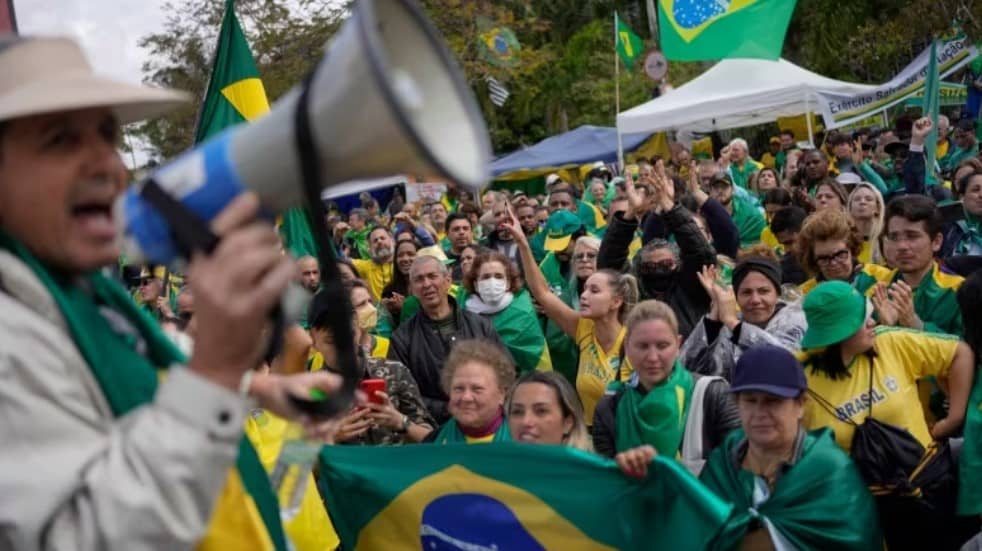ROME — The call for missionary discipleship that has been at the heart of the new evangelization in Latin America and the Caribbean left its mark in the final document of the Synod of Bishops, a Puerto Rican bishop said.
Bishop Ruben Gonzalez Medina of Ponce told Catholic News Service Oct. 29 that the synod’s emphasis on the experiences of the disciples encountering Jesus on the road to Emmaus also was a familiar theme that had been explored at the Latin American bishops’ council meeting in Santo Domingo, Dominican Republic, in 1992.
“Throughout the (synod) document, especially for us in Latin America and the Caribbean, there are some clues where we are clearly identified because, of course, the pope is Latin American,” he said.
Puerto Rico made headlines in 2017 when a Category 4 storm — dubbed Hurricane Maria — devastated the island, forcing many who lost their homes to flee and search for a better life on the U.S. mainland. Most of those who remained lived for several months living without electricity.
Gonzalez said that although he shared with the synod some of the economic and social challenges facing young people in Puerto Rico, many of the issues that resonate with them — migration, the family and education, for example — were addressed by other bishops during the synod.
“I spoke in the third session so, many of the things that I would have wanted to say were already said,” he told CNS. “I only had three minutes, so I had to get straight to the point.”
In his address to the synod Oct. 16, Gonzalez laid out six concrete proposals to help young people experience a “conscious and committed discernment” that responds to the Gospel message.
Among his proposals was a two-year “missionary discipleship” formation program before the young person receives the sacrament of confirmation. The program, he said, would allow young people to obtain “an adequate catechesis that lays the foundation for and strengthens the gift of faith received at baptism.”
Gonzalez told CNS that his proposals addressed some of “the key aspects of missionary discipleship” for the Church in Puerto Rico.
“Family, youth, education, health, economy and poverty are all key aspects of the mission,” he explained. “There is the disintegration of the family and divorce. Another problem for young people is not only that they migrate but that they are disoriented because of the problem of drugs, the problem of vulnerability. This means that we must educate and educate with awareness and responsibility. Not simply just catechism but leadership, a leadership that is taken up within service.”
For Gonzalez, the goal of the evangelization in Puerto Rico is to lead young people to become authentic witnesses of faith and ultimately to be holy like Blessed Carlos Manuel Rodriguez.
Born in 1918, Rodriguez, affectionately known by Puerto Ricans as “Charlie,” worked tirelessly to promote knowledge of the Catholic faith in his hometown of Caguas and throughout Puerto Rico. He taught catechism to high school students, often paying for their supplies out of his own pocket.
He died of colorectal cancer in 1963 at the age of 44 and was beatified by St. John Paul II in 2001, becoming the first Puerto Rican and the first Caribbean-born layperson in history to be beatified.
“What did our Blessed Carlos, a Puerto Rican like us, say about holiness? (He said) ‘Do what needs to be done and do it well,'” Gonzalez said.
Although Rodriguez had a brother who was a Benedictine monk and a sister who became a Carmelite nun, he knew that he wasn’t called to religious life.
“He said he was called to be a layperson,” the bishop said. “Curiously enough, he is the model that we have in Puerto Rico for the path to holiness. And how was Blessed Carlos sanctified? By doing what needed to be done.”
“He was an office secretary, he played music, he was a catechist, he worked at the university,” the bishop said. “When you look at him from the view of a normal life, it is like what Pope Francis said in his apostolic letter, Gaudete et Exsultate: that we have many saints next door.”

















